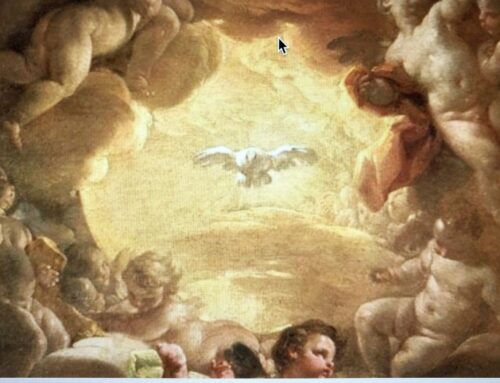 After illustrating the historical denigration of women from ancient times in virtually every culture and religion, Part I of this essay ended with this sentence: “Having affected the lives of half the members of the human race in innumerable ways for millennia, the denigration of women is clearly the greatest single injustice in human history and continues to be a stain on culture and religion alike.”
After illustrating the historical denigration of women from ancient times in virtually every culture and religion, Part I of this essay ended with this sentence: “Having affected the lives of half the members of the human race in innumerable ways for millennia, the denigration of women is clearly the greatest single injustice in human history and continues to be a stain on culture and religion alike.”
What can be done to correct this historic injustice? In this essay, I will focus on the questions the issue raises for Christians, more specifically for Catholics, whose Church is the oldest Christian denomination and whose intellectual tradition has been most consistently maintained for centuries.
Question: Many of the individuals who expressed misogynous views are honored saints of the Church, including Augustine, Jerome, and Aquinas. Wouldn’t challenging their view of women be, in effect, a denial of their sanctity?
Answer: To be human is to be imperfect, which means that even the wisest and/or most saintly of individuals can embrace errors, particularly ones embedded in their age and culture. As long as they did not realize the view was mistaken, they had no moral culpability. Therefore, pointing out their error in no way challenges their holiness.
Question: Is it possible to reject misogyny in Catholic teaching without rejecting the fundamentals of the Catholic faith?
Answer: Certainly. The only reference to women in either the Apostle’s Creed or the Nicene Creed is the reference to Jesus being “conceived by the Holy Spirit, [and] born of the Virgin Mary.” Rejecting misogyny in no way implies a denial of this article of faith.
Question: Won’t the credibility of the hierarchy be undermined if they admit that their predecessors held misogynistic views?
Answer: On the contrary, their credibility will be undermined only if they realize misogyny existed yet remain silent about it or, worse, perpetuate it. Humbly acknowledging and disavowing such errors will enhance rather than diminish the hierarchy’s credibility. (The Parable of the Pharisee and the Publican is instructive at the institutional, as well as the personal, level.)
Question: Isn’t questioning the Church’s teachings tantamount to denying that the Holy Spirit guides the Church?
Answer: The two mental activities are very different—questioning merely inquires, whereas denying makes a judgment. Of course, those who question the Church’s teachings may also deny the workings of the Holy Spirit, just as those who question the meaning of natural disasters and human illness may also reject the idea of a loving, provident Creator. On the other hand, questioning a teaching of the Church can simply mean wondering whether Church leaders have correctly understood the Holy Spirit’s guidance. (Neither ordination nor elevation to higher clerical office eradicates the human propensity to error.)
Question: Isn’t thinking about flaws in Church leaders dangerous to one’s faith?
Answer: Every act of thinking is dangerous in the sense that it has the potential to lead to error. But to forego thinking on that account is to foreclose the possibility of avoiding/overcoming error and finding truth. The human mind is the greatest gift God has given us and, when used with honesty and humility, is a path to His truth and ultimately to Him. Not to use our capacity for thinking—particularly about important matters—shows ingratitude to God.
Question: If the Catholic Church has played a significant role in the almost universal denigration of women, as demonstrated in Part I of this essay, how can the Church correct that mistake in a way consistent with Christ’s message? (The italicized words are crucial. The Church’s mission is not to conform to the cultural preferences or norms of any age, but to convey the Christ’s Gospel to every age.)
Answer: To answer this question, we need to perceive the problem in the context of Jesus’ command to love our neighbors:
Jesus taught that the second greatest commandment is to love our neighbors as we love ourselves. (Matthew 22: 36-40) The form of love He was referring to, of course, is agape, which denotes respect, empathy, and charity toward others.
Respecting others entails, inter alia, refusing to harbor negative stereotypes and unfounded suspicion of them.
Many of the theologians who developed Christian doctrine in the first millennium, and those who reinforced it in the second, harbored negative stereotypes and unfounded suspicion of women. That they may have done so without intending to be unchristian, but only because the culture of their time conditioned them to embrace that perspective, does not lessen the harm done.
Moreover, the theologians’ failure to love women as Christ commanded was not merely a personal fault. By being institutionalized in Catholic doctrine, their failure became, as well, a fault of the Church. It is therefore the responsibility of theologians and members of the hierarchy to acknowledge that failure and make amends for the consequences it has produced over the last two millennia.
How can the Church make amends? By identifying the unloving patterns of thought and behavior toward women that exist in its teachings and replacing them with thoughts and behavior more in keeping with Christ’s commandment to love.
Copyright © 2014 by Vincent Ryan Ruggiero. All rights reserved


